INTERNACIONAL
Race against time: How Congress barely made July 4 deadline on ‘big, beautiful bill’
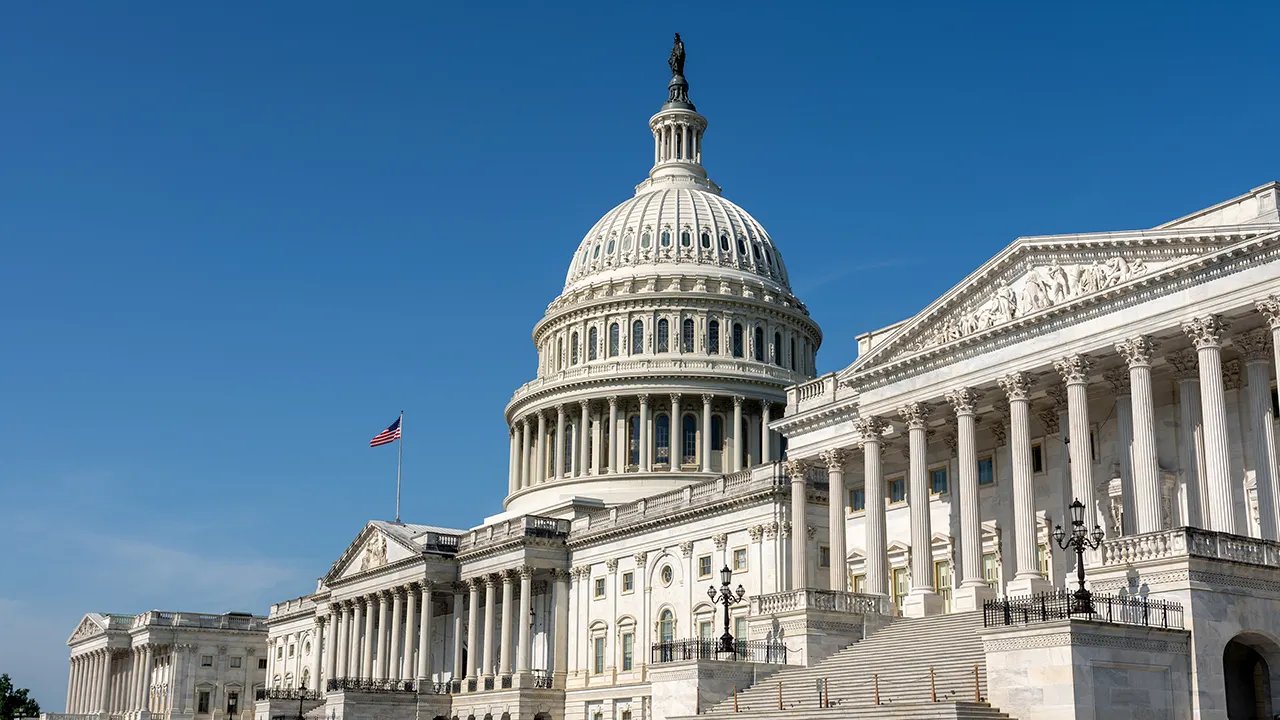
NEWYou can now listen to Fox News articles!
Football and basketball coaches are experts in clock management.
So are lawmakers.
Coaches are adept at either burning or saving just enough time on the clock to execute a play – or prevent the other team from doing so.
Congressional clock management is very different.
TRUMP $3.3T MEGABILL SETS HOUSE RECORD FOR LONGEST VOTE IN HISTORY
Whatever lawmakers say they will do – it will always take them a profoundly longer period of time in which to do it.
That’s why the temporal politics of passing President Donald Trump’s «big, beautiful bill» overwhelmed everyone who works on Capitol Hill over the past few weeks.
That ranges from the lawmakers themselves to the aides, journalists, Capitol custodians and U.S. Capitol Police officers.
To wit:
Congressional Republicans have churned through variations of frameworks and iterations of the big, beautiful bill since February. But things finally got serious when the House adopted its formal version of the package on May 22, beating the Memorial Day goal by four days.
There was chatter that the Senate would tackle the House’s package the week of June 9. Then that fell to the week of June 15. The idea was that the Senate would process its version of the bill that week and then allow the House to sync up during the week of June 22.
Then those hopes were dashed.
That’s to say nothing of the Senate at least voting to proceed to even start debate at the very end of the week of June 15.
Here’s what really happened. And it underscores just how protracted the process can be on Capitol Hill, especially with a very complicated and controversial piece of legislation.
On Monday, June 23, Republican senators talked about taking a procedural vote to launch debate on the big, beautiful bill as early as Wednesday or Thursday, June 25 or 26. Such a vote would require just 51 yeas. But the bill wasn’t ready. Republicans were still crafting and drafting the bill to comport with Senate budget rules. The GOP also aimed to write the legislation in a fashion to court 51 yeas to crack the procedural hurdle and formally start debate.
Midweek came and the Senate never took a procedural vote. Sens. Ron Johnson, R-Wis., and Thom Tillis, R-N.C., opposed starting debate on a bill that was not complete.
So midweek morphed into the weekend, and when the Senate convened on Saturday, June 28, Fox News was told the chamber would take a procedural vote to begin debate around 4 p.m. ET.
SENATE REPUBLICANS RAM TRUMP’S ‘BIG, BEAUTIFUL BILL’ THROUGH KEY TEST VOTE
Well, you guessed it.
The Senate did not trigger that vote until 7:31 p.m. Saturday. And the 15-minute vote turned into a three-hour and 38-minute affair. The Senate closed the vote at 11:09 p.m.
Saturday – with Vice President JD Vance nearby in case his services were necessary to break a tie.
They were not.
At least not on the dais.
But Vance played a pivotal role in negotiating with Johnson, Sen. Rick Scott, R-Fla., and others to greenlight the Senate starting on the bill.
However, Senate Minority Leader Chuck Schumer, D-N.Y., then compelled Senate clerks to read the entire 940-page bill out loud from the dais. That enterprise consumed just under 16 hours of floor time. The clerks – their voices cracking and hoarse – concluded a few minutes after 3 p.m. on Sunday. This marked the first time a senator required the clerks to verbally read a bill before the Senate since 2021.
So, once the clerks concluded their oratory, it was believed that the Senate might go all night with its marathon voting session – known as a «vote-a-rama» – and try to finish the bill sometime by dawn Monday.
But this is Congress time.
Senators didn’t even begin the vote-a-rama until 9:40 am Monday. Twelve hours later, Senate Majority Leader John Thune, R-S.D., suggested it was time to «start figuring out» a final group of amendments that were necessary to conclude the bill.
Some groaned at that notion. One senator told Fox News that 12 hours later was a little late in the game to «start figuring out» something of that magnitude.
The Senate then toiled throughout the night Monday and into Tuesday. Thune and the GOP leadership finally cut a deal with Sen. Lisa Murkowski, R-Alaska, on rural hospitals to marshal her vote. The Senate approved the bill late Tuesday morning after an all-night session. Vance was back to break the tie in what is called a «Van Halen» vote. The tally was 50-50 since three GOP senators defected. But Vance’s vote in favor made the roll call «51-50.»
For those who are uninitiated in the Van Halen discography, «5150» was Van Halen’s first album with new lead singer Sammy Hagar, supplanting David Lee Roth. It went to No. 1 on the Billboard charts.
Then, it was on to the House.
HOUSE ADVANCES TRUMP’S MASSIVE AGENDA BILL AFTER FREEDOM CAUCUS CAVES
The House Rules Committee serves as a gateway for legislation to head to the floor. It convened a meeting early Tuesday afternoon. The Senate would soon send its revamped version of the big, beautiful bill across the Capitol Dome for the House to align. The Rules Committee then proceeded to meet until around 1 a.m. Wednesday, prepping the bill for the floor.
That meant the House could vote by late Wednesday afternoon.
But there was a problem.
House GOP leaders discovered what they termed a «technical error» in the rule. The entire House must first approve the rule before debating legislation on the floor. So the House needed to vote on the fix first. That vote started early Wednesday afternoon – and continued for another seven hours and 31 minutes. That established a record for the longest roll call vote in House history, topping a vote of seven hours and 21 minutes in 2021.
Some Republicans weren’t at the Capitol. But they held the vote open to buy time to work on skeptical GOP members who may be holdouts.
And around 9:30 p.m. Wednesday, House Speaker Mike Johnson, R-La., decided to double-dog dare anyone who was against the bill to put their voting card where their mouth was. Republican leaders closed the «technical correction» vote and proceeded to a vote on the «rule.» If the House adopted the rule, it could formally debate the bill. The House was stuck if its members failed to approve the rule.
The tally board behind the dais in the House chamber populated relatively quickly. All 216 Democrats said no There were also four GOP no votes – and several who refused to vote yes. Republicans could only lose three votes and still pass the rule. Rep. Thomas Massie, R-Ky., was a yes on the rule – even though he opposed the bill. He then switched to no as the vote dragged on. However, Massie ultimately supported the rule in the end.
HAKEEM JEFFRIES BREAKS KEVIN MCCARTHY RECORD WHILE STALLING TRUMP’S ‘BIG, BEAUTIFUL BILL’
Reps. Victoria Spartz, R-Ind., Keith Self, R-Texas, Andrew Clyde, R-Ga., and Brian Fitzpatrick, R-Pa., were no votes throughout the vote. But around 1 a.m., there was movement. The holdouts and some of those who voted no met with Johnson and other GOP leaders. That seemed to pry loose the votes of the holdouts and opponents – except Fitzpatrick.
But there was a problem.
Rep. Scott Perry, R-Pa. – who had not voted – drove home to Pennsylvania. So everyone at the Capitol patiently waited for Perry to return. He did around 3:30 a.m. Thursday. Everyone but Fitzpatrick voted as a bloc in favor of the rule. The House had the votes to begin debate on the rule.
It looked as though the House might vote around daybreak on the actual bill itself.
But the office of House Minority Leader Hakeem Jeffries, D-N.Y., had told Fox News on Wednesday that Jeffries intended to speak for an hour or so at the end of debate. There’s a custom in the House where top leaders of both parties are yielded «a minute» to speak on the floor. But this is a «magic minute.» As a courtesy to those leaders, they speak as long as they want.
Jeffries began speaking just before 5 a.m. Thursday – and finally concluded eight hours and 45 minutes later just after 1:30 p.m. ET Thursday. Jeffries shattered the mark of eight hours and 32 minutes established by House Speaker Kevin McCarthy, R-Calif., in 2021. McCarthy set the record as minority leader.
So those House members hoping to hop an early morning flight and get home for July 4 would have to wait.
CLICK HERE TO GET THE FOX NEWS APP
Mike Johnson didn’t speak nearly as long as Jeffries. But he did observe that the late President Ronald Reagan once said that no speech should run longer than 20 minutes.
Johnson spoke for 23 minutes.
And then the House voted, finally passing the bill 218-214 at 2:31 p.m. Thursday. Fitzpatrick and Massie were the only GOP noes.
It is said that we never have enough time in life. And if you work on Capitol Hill, you’ll probably have even less thanks to congressional clock management.
INTERNACIONAL
Ingenio ante la escasez de recursos: Ucrania recurre a redes de pesca para atrapar drones rusos
INTERNACIONAL
Cuomo, Adams trade shots over who should drop out in race against Mamdani for NYC mayor
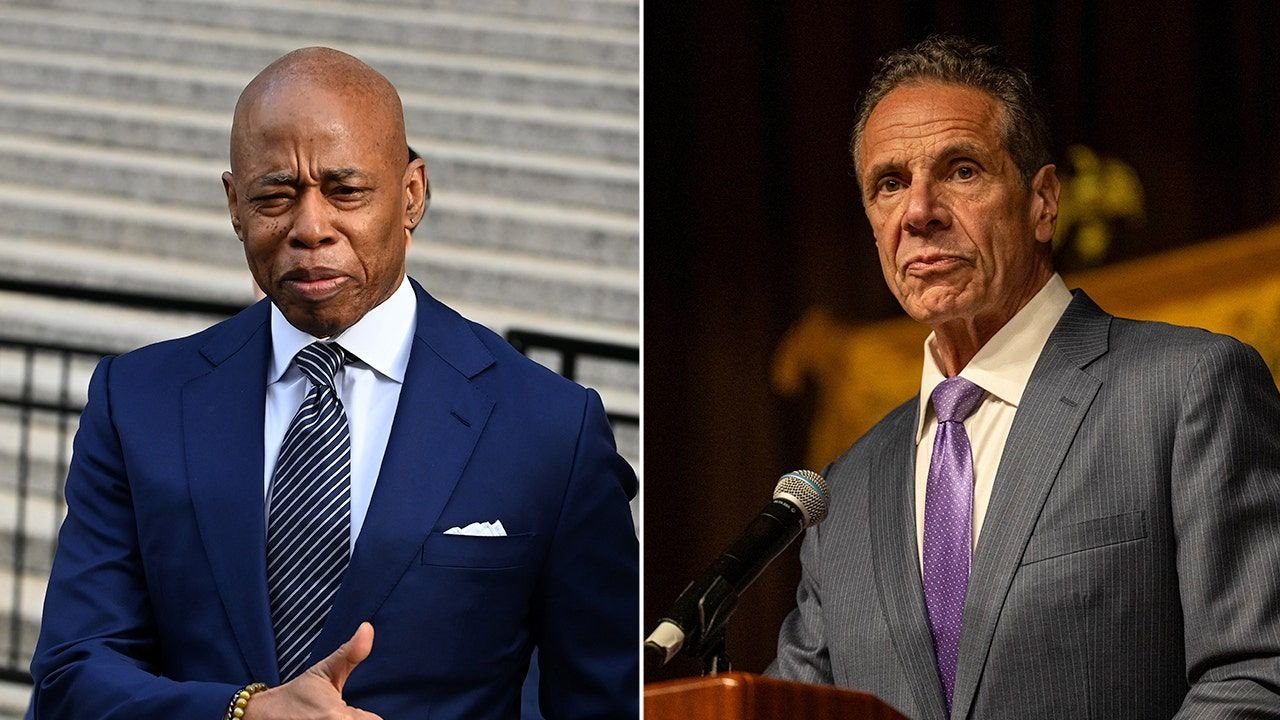
NEWYou can now listen to Fox News articles!
Former New York Gov. Andrew Cuomo and current New York City Mayor Eric Adams are each urging the other to drop their mayoral bids in the 2025 race against Democratic Party nominee Zohran Mamdani.
«I think that everyone should align behind the person who has won one as mayor,» Adams said Monday at a news conference.
Meanwhile, Cuomo’s top advisor argued in a statement that «we do not see any path to victory for Mayor Adams.»
Mamdani, the 33-year-old democratic socialist assemblyman from Queens, two weeks ago topped Cuomo by 12 points to win the Democratic Party mayoral primary. Mamdani instantly became the clear frontrunner in November’s general election in heavily blue New York City, where Democrats outnumber Republicans by roughly a six-to-one margin.
MAMDANI OFFICIALLY WINS PRIMARY, BUT CUOMO STAYING IN BATTLE FOR NEW YORK CITY MAYOR
Democratic mayoral candidate Zohran Mamdani takes the stage at his primary night victory party on Wednesday, June 25, 2025 in New Yor City. (Heather Khalifa/AP Photo)
With his victory over Cuomo and nine other Democratic candidates, Mamdani sent political shockwaves across the country, and took a big step towards becoming the first Muslim mayor of the nation’s most populous city.
Cuomo, the three-term governor who resigned from office in 2021 amid multiple scandals and who was aiming for a political comeback, had been the frontrunner in the mayoral primary race for months until Mamdani closed the gap in the closing weeks of the campaign.
MAMDANI’S POLITICAL EARTHQUAKE ROCKS DEMOCRATS
Mamdani will face off in November against Republican Curtis Sliwa, the founder of the volunteer crime-fighting patrols known as the Guardian Angels. Sliwa is the GOP nominee for a second straight election cycle.
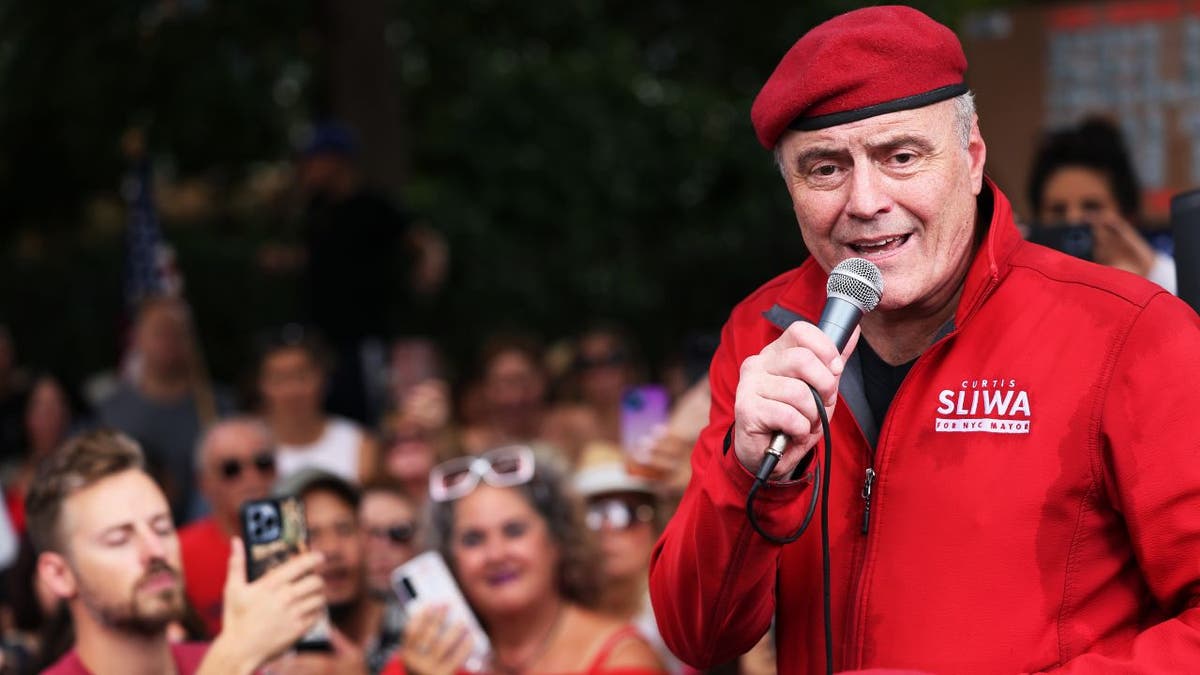
Guardian Angels founder Curtis Sliwa is the Republican nominee for New York City mayor for a second straight election cycle. (Michael M. Santiago/Getty Images)
Jim Walden, a former federal prosecutor running as an independent, is also on the ballot.
Adams, who won election as mayor in 2021 as a Democrat, is running as an independent. The mayor dropped his Democratic re-election bid earlier this year amid sinking poll numbers in the wake of multiple controversies.
While he acknowledged Mamdani’s victory on primary night, Cuomo left the door open for running as an independent candidate, which election rules in New York State permit.
REPUBLICANS USE MAMDANI BOMBSHELL VICTORY OVER CUOMO AS AMMUNITION TO BLAST DEMOCRATS AS EXTREMISTS
And Cuomo recently let a deadline pass for candidates who had already qualified to run as independents to decline that independent ballot line.
«I think Andrew and Curtis should rally behind me. I won as mayor. You know, I’m the only one that’s in this race right now that has ever won as mayor,» Adams said at his news conference.
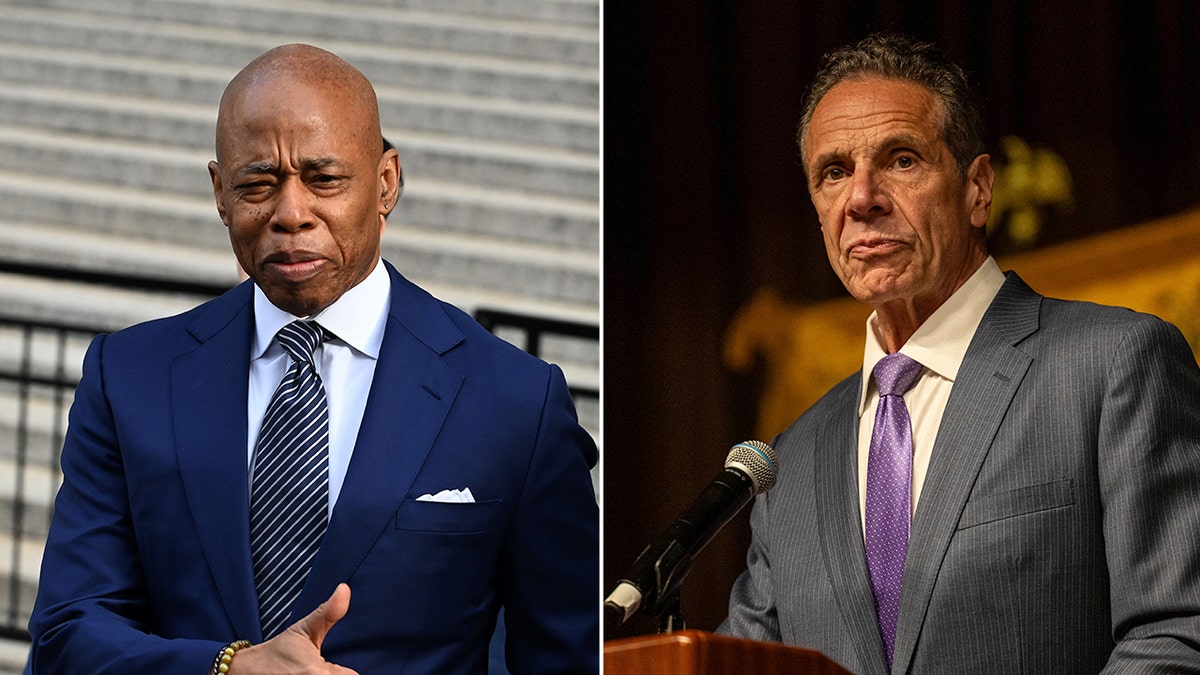
New York City mayor Eric Adams and former New York Gov. Andrew Cuomo have each asked each other to drop out of the New York City mayoral race. (Andrea Renault/Star Max/GC Image; Alex Kent/Getty Images)
And in an interview with CNBC, Adams said that in a recent conversation, the former governor asked him to step aside.
«I said, ‘Andrew, are you that level of arrogant? I’m the sitting mayor!’» Adams said of his conversation with Cuomo. «I’m the sitting mayor of New York City when you just lost to Zohran by 12 points.»
«They heard your message. You lost,» Adams added. «That’s the highest level of arrogance.»
THESE DEMOCRATS HAVEN’T ENDORSED MAMDANI, BUT THEY’RE DEFENDING HIM AGAINST TRUMP
Adams’ poll numbers were sinking even before he was indicted last year on five counts, which accused the mayor of bribery and fraud as part of an alleged «long-running» scheme to personally profit from contacts with foreign officials.
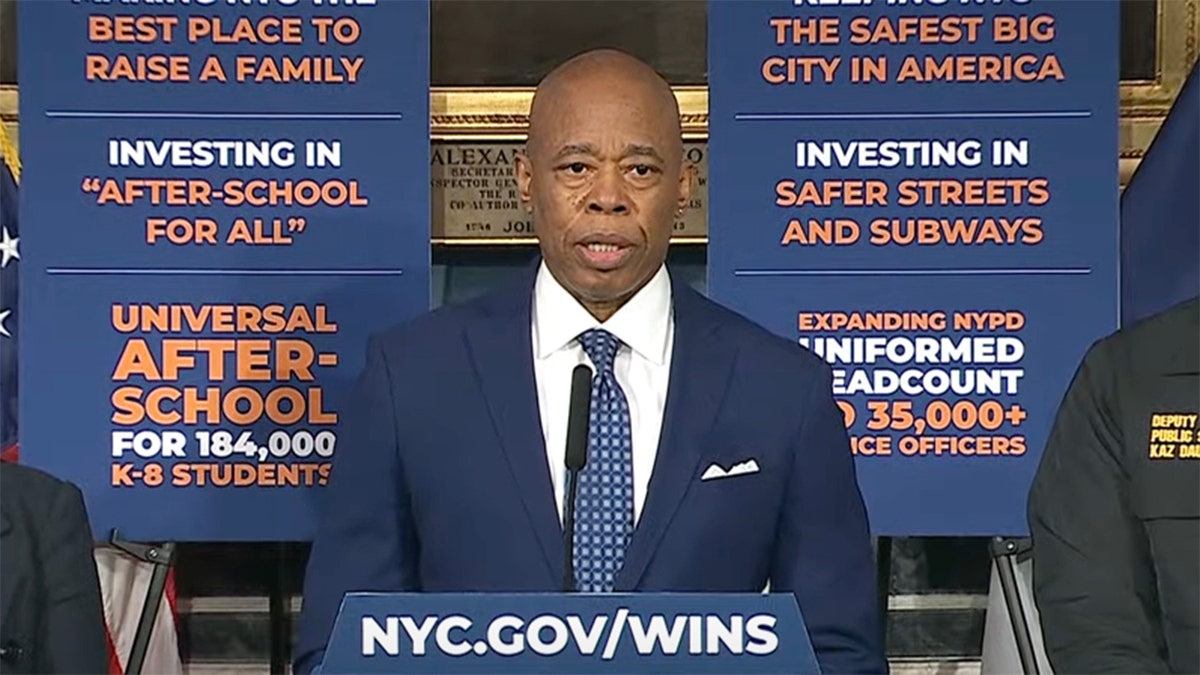
New York City Mayor Eric Adams won election in 2021 as a Democrat but is seeking re-election this year as an independent candidate. (NYC Mayor’s Office)
The mayor made repeated overtures to President Donald Trump, and the Justice Department earlier this year dismissed the corruption charges, so Adams could potentially work with the Trump administration on its illegal immigration crackdown.
«Mayor Adams did not run in the Democratic primary because he knew he was anathema to Democrats and unelectable. Nothing has changed,» top Cuomo advisor Rich Azzopardi charged in a statement on Monday.
And Azzopardi highlighted a proposal made last week by Walden that an independent study should be conducted to see which candidate would be the strongest to take on Mamdani, with the weaker contenders agreeing to drop out.
Azzopardi argued that Walden «correctly points out that if he, Mayor Adams, and Governor Cuomo all run, it all but ensures a socialist victory. Jim proposed a fair independent survey be taken in September to determine whose candidacy and vision for New York is strongest in a one-on-one race in November.»
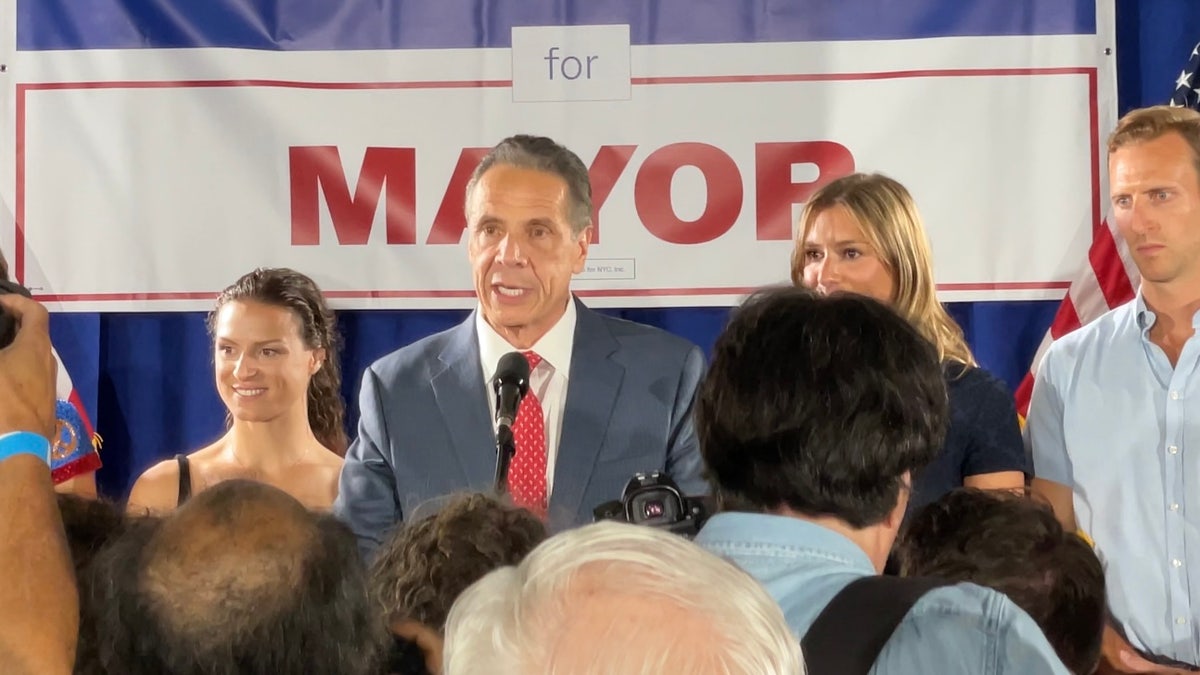
Former New York Gov. Andrew Cuomo, in a speech to supporters, acknowledges that rival Zohran Mamdani ‘won’ the New York City Democratic Party mayoral primary, on June 24, 2025 in New York, N.Y. (Paul Steinhauser/Fox News)
«This is the time to put aside the usual political selfishness and agree to do what is truly best for all New Yorkers,» Azzopardi added. «While we review this proposal, we call on other candidates to do the same.»
Walden on Monday said in an interview on Fox News Radio’s «Fox Across America with Jimmy Failla» that a Mamdani victory in November «would be terrible for the city and would sit us back a whole generation so I proposed a poll in either late September early October.»
«If the candidates agreed to this we would all agree on a poll that would happen and it would be winner take all,» he explained.
Mamdani surged to a primary victory thanks to an energetic campaign that put a major focus on affordability and New York City’s high cost of living.
Endorsements from Rep. Alexandria Ocasio-Cortez — New York City’s most prominent progressive — and Sen. Bernie Sanders of Vermont, the two-time Democratic presidential runner-up, helped Mamdani solidify support on the left.
Mamdani made smart use of social media platforms, including TikTok, as he engaged low-propensity voters. He proposed eliminating fares to ride New York City’s vast bus system, making CUNY (City University of New York) «tuition-free,» freezing rents on municipal housing, offering «free childcare» for children up to age 5, and setting up government-run grocery stores.
And thanks in part to the efforts of a massive grassroots army of volunteers, he rode a wave of support from younger and progressive voters to catapult into first place.
CLICK HERE TO GET THE FOX NEWS APP
Mamdani’s victory has reignited long-standing debates within the Democratic Party between its more moderate and progressive wings, and between outsiders and the establishment.
And it’s reignited the debate over whether the party’s policy, or messaging, was to blame for last November’s election setbacks, when Democrats lost control of the White House and Senate, and failed to win back the House majority.
INTERNACIONAL
Malaparte, el camaleónico escritor que intentó que ser fascista pareciera genial y después todo lo contrario

En los últimos días de Curzio Malaparte, dos fuerzas dominantes de la Italia de posguerra —la Iglesia Católica y el Partido Comunista— se disputaron su lecho de muerte, intentando conseguir una conversión final. Según Maurizio Serra, ambas facciones afirmaron haberlo logrado. Este episodio, descrito en la biografía Malaparte, ilustra la naturaleza contradictoria y teatral de un personaje que, hasta el final, mantuvo en vilo a quienes lo rodeaban.
A partir de este retrato, Serra advierte contra la visión de la “opera buffa” que trivializa el fascismo italiano como una mera comedia, y se empeña en revelar los hechos detrás de un hombre que se puso al servicio de las tendencias políticas más oscuras del siglo XX.
La noticia central de la obra de Serra es la reconstrucción de la vida de Malaparte —nacido Kurt Erich Suckert en 1898, hijo de padre alemán y madre italiana—, quien adoptó su célebre seudónimo en los años 20, en parte por sugerencia de Benito Mussolini, que deseaba que el escritor “italianizara” su identidad. El nombre, un juego con “Bonaparte” al que se antepone el prefijo “Mal-” (malo), resume la artificiosidad que caracterizó su trayectoria. Serra, exmiembro del servicio exterior italiano y autor de libros sobre figuras como Mussolini, Marinetti y d’Annunzio, sostiene que la vida de Malaparte fue un ejemplo de coherencia estilística, no moral.
El fascismo, según Serra, fue un proyecto más imaginativo que racional, impulsado por élites europeas que se presentaban como populistas en su búsqueda de grandeza. Walter Benjamin definió el fenómeno como “la introducción de la estética en la vida política”, una idea que la biografía de Malaparte confirma.

El escritor encarnó las contradicciones de su generación: fue un intelectual anti-intelectual, un hombre viril que usaba maquillaje y cuidaba su peinado, valiente como soldado y corresponsal de guerra, pero cobarde en política y en su vida personal. Aunque despreciaba a los perdedores, sus propios fracasos y proyectos fallidos lo situaron entre ellos.
En su juventud, Malaparte militó en el Partido Republicano Italiano, de tendencia izquierdista, anticlerical y antimonárquica. Se ofreció como voluntario en la Primera Guerra Mundial antes de que Italia entrara en combate y en 1918 luchó en los bosques de Bligny contra el avance alemán, enfrentándose a figuras como el filósofo Ernst Jünger, quien compartía su visión estetizada de la guerra.
Tras la contienda, frecuentó círculos bohemios en Roma, redactó un manifiesto de vanguardia y cultivó la imagen de artista atormentado. Un libro crítico con el alto mando militar le valió notoriedad y lo acercó a los descontentos políticos, aunque pronto abandonó la izquierda para abrazar el nacionalismo.
Durante los años 20, Malaparte se alineó con el ala más radical del fascismo, el “sindicalismo nacional”, que proponía una revolución liderada por la clase obrera nacionalizada contra una élite decadente. Celebró la violencia callejera en sus escritos, aunque no participó en la Marcha sobre Roma de 1922, hecho que luego ocultó y utilizó en su beneficio tras la caída del régimen.

A medida que el gobierno de Mussolini buscaba alianzas con sectores conservadores, Malaparte se distanció de los ultras fascistas con la esperanza de avanzar en una carrera diplomática. Al no lograr sus objetivos, adoptó una actitud burlona hacia la dirigencia fascista, lo que le costó el confinamiento en la isla de Lipari. Más tarde, utilizó este episodio para presentarse como antifascista, pero Serra aclara que, tras su liberación anticipada por clemencia de Mussolini, Malaparte volvió a codearse con la alta sociedad fascista, incluyendo al ministro de Asuntos Exteriores Galeazzo Ciano y su esposa Edda, hija de Mussolini.
La relación de Malaparte con el fascismo fue ambivalente. No figuró entre los ideólogos principales, como Giuseppe Bottai, pero su fama literaria durante el periodo de entreguerras mostró el lado seductor del movimiento y le permitió mantener una relación tensa con Mussolini hasta los años 30.
Serra sostiene que el fascismo no fue solo un culto colectivo al líder, sino también una empresa individual: una adoración narcisista del yo y una oportunidad para jóvenes ambiciosos de provincias insatisfechos con su lugar en la sociedad liberal.
Sus aparentes transformaciones políticas respondieron al oportunismo o al capricho, y aunque abandonó el Partido Fascista cuando fue necesario, “de principio a fin, se encuentra en él una veta fascista que nunca desmintió bajo ningún régimen, en particular un gusto por la fuerza, la única ideología real de un hombre que despreciaba todas las ideologías”, según Serra.

El desprecio de Malaparte por los perdedores fue el hilo conductor de su vida y explica la facilidad con la que abandonó a Mussolini tras su caída para unirse al Reino del Sur, alineado con los Aliados. Su talento literario lo salvó tantas veces como lo metió en problemas. Sobrevivió a las purgas antifascistas del posguerra gracias a la intervención de su amigo, el jefe comunista Palmiro Togliatti, que esperaba aprovechar sus dotes para el partido.
En 1931, Malaparte publicó “Technique du Coup d’État”, donde retrató a Adolf Hitler como un cobarde y un débil, consolidando su imagen de anti-nazi. No obstante, su oposición al nazismo no le impidió que el Tercer Reich le permitiera cubrir el frente oriental y acceder a altos cargos nazis para el periódico italiano Corriere della Sera.
Sus crónicas periodísticas sirvieron de base para Kaputt (1944), una novela que ofrece un testimonio de primera mano sobre la guerra y que figura entre las primeras obras en abordar con seriedad la catástrofe europea. Para entonces, Malaparte ya había cambiado de bando, aunque no sin resentimiento: cinco años después, en La piel (1949), trató la ocupación aliada de Italia con ironía corrosiva.

La obra de Malaparte ha trascendido los márgenes de la extrema derecha. Entre los admiradores de “Kaputt” y “La piel” se cuentan Milan Kundera, Edmund White y Gary Indiana. El Premio Malaparte, que lleva su nombre, ha sido recibido por novelistas como Rachel Cusk y Karl Ove Knausgaard.
El sociólogo Michael Mann definió el fascismo como “un movimiento de la pequeña intelectualidad”, pero Malaparte fue un talento de primer orden tanto en el periodismo como en la ficción, aunque nunca logró canalizar su energía creativa de forma constructiva.
Serra analiza con precisión los vaivenes políticos de Malaparte y su habilidad para alternar la adulación y la sátira. El resultado es el retrato de un camaleón social que falseó su vida, un personaje que hoy resulta reconocible en quienes persiguen el poder y la fama sin atender a principios ni prudencia.
1950,1950s,20th-century,art,author,commentary,contributions,cultural,culture,curzio malaparte,documentation,europe,european,figure,figures,heritage,historical,history,influence,intellectual,intellectuals,italian,italy,italys,legacy,literary,literature,mid-century,photograph,political,portrait,post-war,role,social change,thought,tradition,war,works,world war ii,writer,writers
-
POLITICA2 días ago
Para La Libertad Avanza el acuerdo con PRO está encaminado, pero aún hay mutua desconfianza
-
POLITICA3 días ago
El Gobierno avanza con un plan que complica a los gobernadores y pone en riesgo sus alianzas en el Congreso
-
POLITICA2 días ago
🔴URGENTE – La Justicia liberó a tres militantes kirchneristas acusados en la causa por los desmanes en la casa de Espert
























